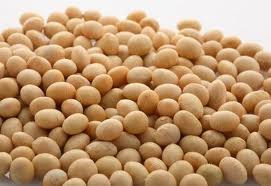
Thursday, April 14, 2011
Gates backs GM crops with $17.7m

Wednesday, April 13, 2011
Genetically Modified Canola Plants Evade Farmers' Borders
Though people may be very wary to take another issue in our environment on their back, I think that it is important that we keep watching this trend and make sure that the rise in GM plants does not get overwhelmingly high. We don't think that these types of things will happen and it seems that they always end up doing so. While these plants may not be very well adapted to the environment, their adaptions are constantly changing and will eventually be able to hold their own in the wild environment, in contrary to the farm environment. I also find it interesting that the people who did this experiment were the first to realize this onslaught of GM canola plants, and not the environmentalists in the area.
Questions:
1) Do you think that this will become an issue if we do not keep tabs on the amount of GM canola plants throughout North Dakota?
2) Do you think there should be a mandatory check of amounts of wild GM plants?
3) Should farmers have to make sure that these types of "escapes" don't happen?
4) Do you think that scientists are undersizing the magnitude of this spread?
Title: Genetically Modified Canola 'Escapes' Farm Field
Author: Geoffrey Brumfiel
Date: 4/13/2011
Link: http://www.npr.org/templates/story/story.php?storyId=129010499
Tuesday, April 12, 2011
GM crops created superweed
Wednesday, April 6, 2011
Brazil utilises more GM crops than ever before

There was a study conducted by an agricultural consulting company, Celeres, from
We get so many crops from
1. How can this be beneficial to our society?
2. With the economy the way it is, would the price of these foods increase or decrease?
3. Have you read anything about Brazil and GMOs?
4. What can you tell me about genetically modified food?
More Revelations of FDA Bad Behavior Around GE salmon

- Do you side with the FDA or Marine activists? Why?
- What other ways can the FDA ensure that genetically modified fish do not escape into the wild?
- Do you agree that it is important to be informed about this topic? Why or why not?
- Would you buy genetically modified salmon if they were sold in stores? Why or why not?
- What do you think the situation with genetic modification will be like in a decade?
Monday, April 4, 2011
GMOs taking over
This picture shows how more, and more seeds are being injected with GMOs.
Wow, I knew that genetically modified seeds were taking over normal ones, but not to the extent that 90% of crop species have dissapeared. I feel that some type of action should be taken. We need to save the other species so our crops are not just all genetically modified plants. One way of doing this could be to limit the amount of GMO seeds planted in an area. Even though the seeds might still take over some parts, other parts will still left to grow normally. I can relate this back to the lab we are currently working on in class. We just started the experiment but we are testing to see if GMO seeds, and the normal seeds with die if we put the roundup ready seed on top. Whats predicted to happen is that the GMO seeds will not die, but the normal seeds will. Overall, I think that something needs to be done to save our plant species, and not let the genetically modified plants take over.
1.) What do you think could be done to prevent GMO seeds from completely taking over?
2.) Do you think GMO seeds are okay to plant?
3.) How would you feel if you were a farmer and your plant species were dissapearing due to GMO seeds taking over?
Title- Saving The Seeds
Author- Suzanne Elston
Publication date- April 2, 2011
http://www.torontosun.com/life/greenplanet/2011/03/30/17811271.html

